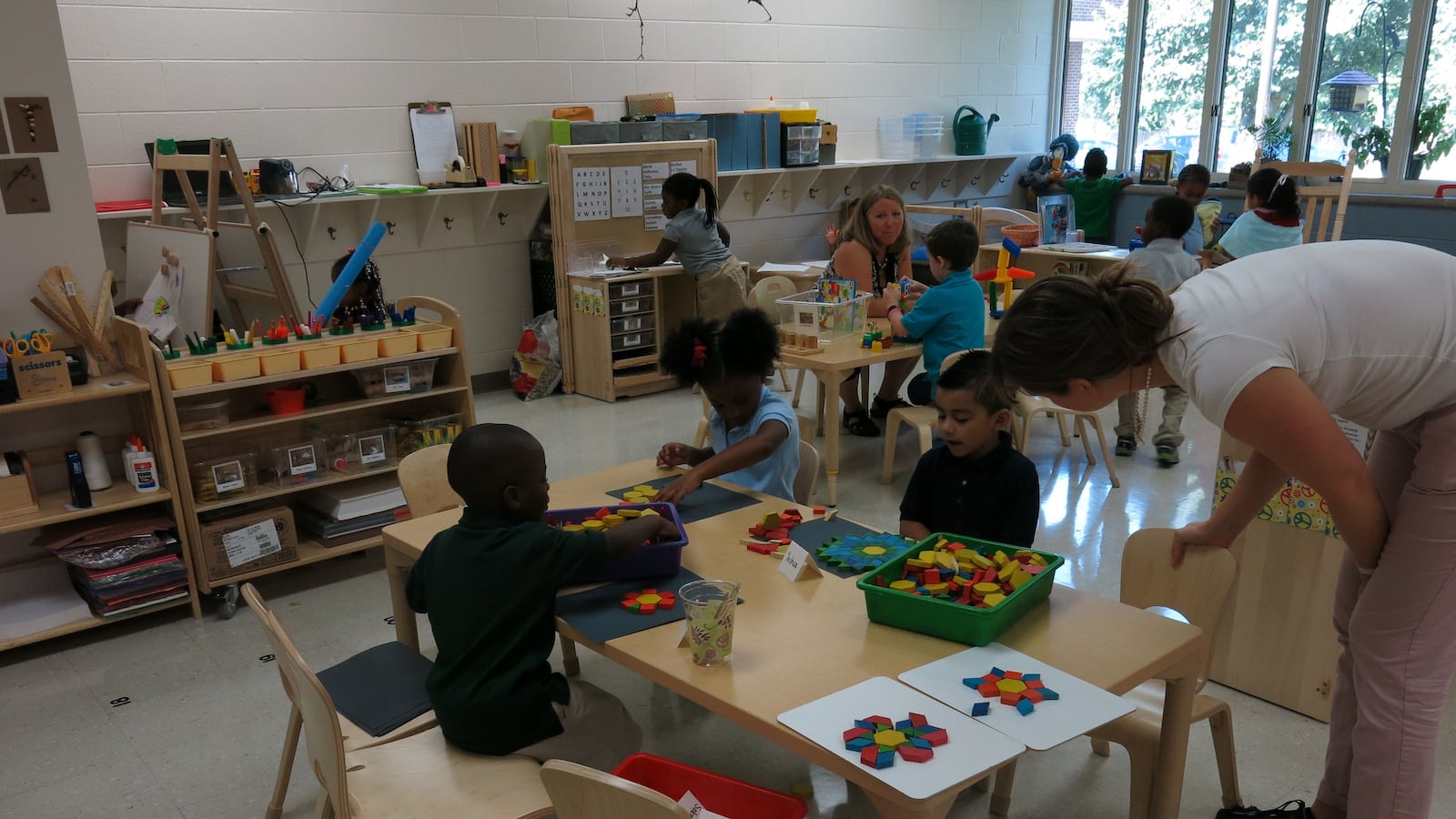Creating and maintaining high-quality pre-kindergarten programs that prepare students for school and shrink achievement gaps is doable — but will take time and resources, say educators and researchers from Nashville and Memphis, two cities where pre-K expansion is a topic of growing interest.
In addition, pre-K teachers must receive more support through professional development and coaching, and there must be a stronger relationship between policy and what research says works.
Such was the consensus of participants in a roundtable discussion in Nashville on Thursday, just days before the anticipated release of a study that could impact state funding of public pre-kindergarten programs.
“We have got to have the resources in place to support quality. Otherwise, we’re really quite frankly just tiptoeing around the edges,” said Lisa Wiltshire, executive director of the Tennessee Department of Education’s office of early learning.
Many education leaders believe public preschool classes are critical to narrowing a stubborn achievement gap in Tennessee, confounded by stagnant reading scores and grappling with the realities that cause many poor children to start kindergarten without basic literacy skills.
But whether funding for expansion comes from the state depends on the results of a study due out next week from researchers at the Vanderbilt Peabody College of Education. Gov. Bill Haslam has said he will not increase state pre-K spending until he sees the results of the six-year study on the efficacy of the state’s program.
Four years ago, a comptroller’s report suggested that Tennessee’s current pre-K program wasn’t boosting achievement throughout elementary school. Early results from the soon-to-be-released Vanderbilt study suggest the program does not have a lasting impact on academics, but does have positive impacts on behaviors such as paying attention in class.
Tennessee’s Voluntary Pre-K program, which was started about a decade ago and cost about $86 million in 2013-14, serves about 18,000 children.
Last year, Haslam applied for and received a $70 million pre-K grant from the U.S. Department of Education for five Tennessee districts — but only after debating whether the funding would provide academic benefits.
Researchers agree there’s no reason to spend money on programs that don’t work. They say policymakers should ask what does work in order to help children be prepared for kindergarten.
“We are pushing the benefits of pre-K … without taking the time to define what we really mean, and worse, to determine if what we implement has the outcomes to what we have promised,” said Dale Farran, a Vanderbilt Peabody professor and the study’s lead researcher. “It is time to take a step back and determine what we really need to scale up … and how we can take that vision and make it happen with consistency.”
DeAnna McClendon, director of early childhood programs for Shelby County Schools, said her district has come to terms with the fact that many of its pre-K classes have been sub-par. Of 800 students tracked by the district after leaving pre-K and entering kindergarten, less than half had the skills necessary for kindergarten. Thus, simply offering a pre-K program isn’t enough.
McClendon said the Memphis district has taken “a hard look” at its programs and what their most effective teachers do. It has made changes, connecting more teachers with coaches and thinking more critically about what pre-K should look like. Now, McClendon reports, about 72 percent of children who attended the Shelby County programs demonstrate some early literacy skills, such as vocabulary recognition, knowing the alphabet, and writing their names.
“Those things might not sound important, but to a kindergarten teacher or a principal who has a lot riding on the line with those third-grade scores, they’re important,” McClendon said.
The state Department of Education has made similar arguments in pushing early literacy as a key part of its plan to boost test scores.
McClendon said a common theme among Shelby County’s reward schools — those improving at a faster rate than 95 percent of schools in the state — is pre-K availability.
One factor to success, she said, is for teachers to remember that 4-year-olds learn differently than older students. In fact, teachers of slightly older students should be looking at the techniques used by effective pre-K teachers. “Sometimes we think we’ve cornered the market on small groups and other early learning market strategies. But those are the same strategies we should be using in kindergarten, first and second grades,” McClendon said.
Farran agreed that developmentally appropriate kindergarten programs are key. “We are having difficulty preventing elementary school expectations to ratchet down to 4-year-olds,” she said.
In addition to the federal grant, Metro Nashville Public Schools has made a commitment to “universal pre-K” — available public programs for all 4-year-olds — by 2018, with considerable financial support from the city. Incoming Mayor Megan Barry has pledged even more support for pre-K. In Shelby County, however, calls for local pre-K funding have floundered.
Billed as a discussion of issues surrounding pre-K expansion, the roundtable was co-sponsored by the Vanderbilt Center for Nashville Studies, Vanderbilt’s Peabody College of Education, and the Nashville Public Library.
Audience members included Haslam’s education analyst and several state representatives, including Rep. Bill Dunn (R-Knoxville), a high-profile skeptic of pre-K programs.

